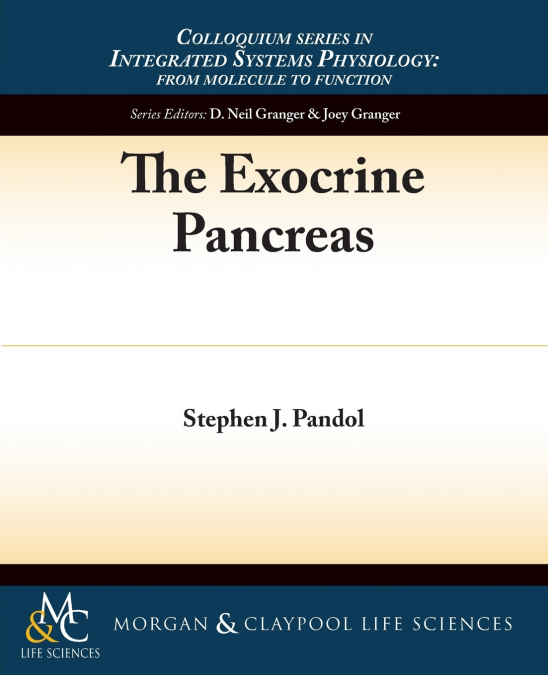
Stephen J. Pandol / Stephen JPandol
The secretions of the exocrine pancreas provide for digestion of a meal into components that are then available for processing and absorption by the intestinal epithelium. Without the exocrine pancreas, malabsorption and malnutrition result. This chapter describes the cellular participants responsible for the secretion of digestive enzymes and fluid that in combination provide a pancreatic secretion that accomplishes the digestive functions of the gland. Key cellular participants, the acinar cell and the duct cell, are responsible for digestive enzyme and fluid secretion, respectively, of the exocrine pancreas. This chapter describes the neurohumoral pathways that mediate the pancreatic response to a meal as well as details of the cellular mechanisms that are necessary for the organ responses, including protein synthesis and transport and ion transports, and the regulation of these responses by intracellular signaling systems. Examples of pancreatic diseases resulting from dysfunction in cellular mechanisms provide emphasis of the importance of the normal physiologic mechanisms.